
Why web3 gaming will finally unlock the true potential of user-generated content - a thread 🧵
Web3 games are living proof of the fact that digital economies will be the most robust, composable, and remixable. Instead of take rates that extract value at every layer of the stack, value can compound in real time thanks to a network of users and engaged contributors.
In traditional and cloud-based game worlds, take rates, centralized companies, and the inherently static nature of game assets put limits on how big universes could become.
Over the past decade, the gaming industry has been feeling its way to a player-centric form of value transfer, with secondary markets and user-generated modding. But the progress has been uneven.
In 2011, Activision’s Modern Warfare 3 was the fastest-selling cultural product of all time, reaching $1 billion in sales & about 6.5 million units in 16 days (beating out the movie Avatar, the previous sales record-holder, by one day).
Modern Warfare in 2011 was what we now think of as a closed ecosystem: it monetized via unit sales, not user-generated in-game items. Funnily, the game still had a “secondary market”: bootleg copies were torrented & high-stakes thefts were masterminded web.archive.org/web/2011110823… 

2011 also saw the official release of Minecraft, the cross-platform sandboxing universe. Soon, Minecraft had a constellation of user-hosted mod repositories and servers; after being bought by Microsoft in 2014, an official modding marketplace arose, with a 50% take rate. 
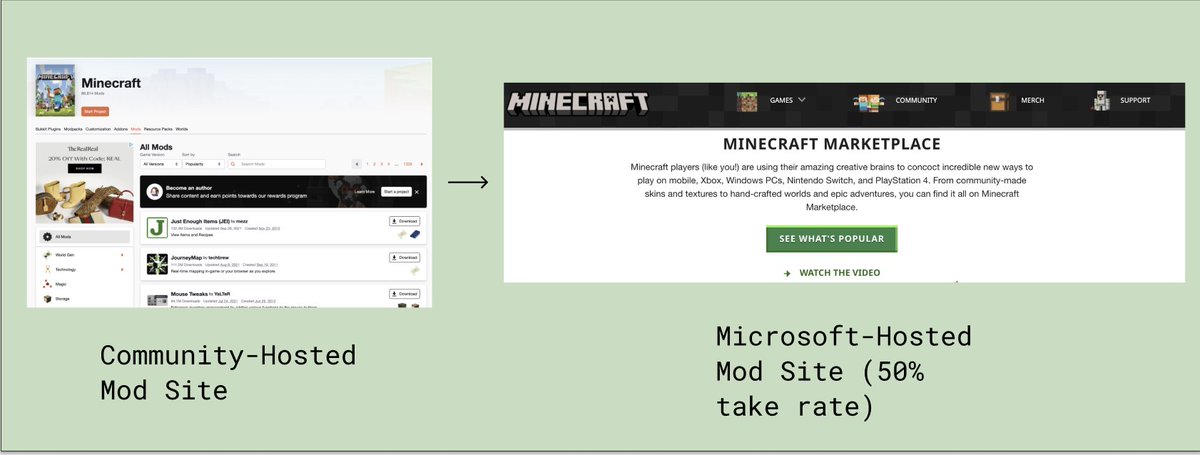
I was surprised when Microsoft announced earnings recently and pointed out that creators generated $350m from mods; after a 50% take rate, that’s just $175m in creator payouts…a shockingly low number for a game with 140 million monthly active users. 

Let’s look at one more example: Roblox. Players of the game can buy Robux, the in-game currency, to purchase in-game items and worlds created by other users in the ecosystem. Developers have made $689m since the beginning of 2019. 
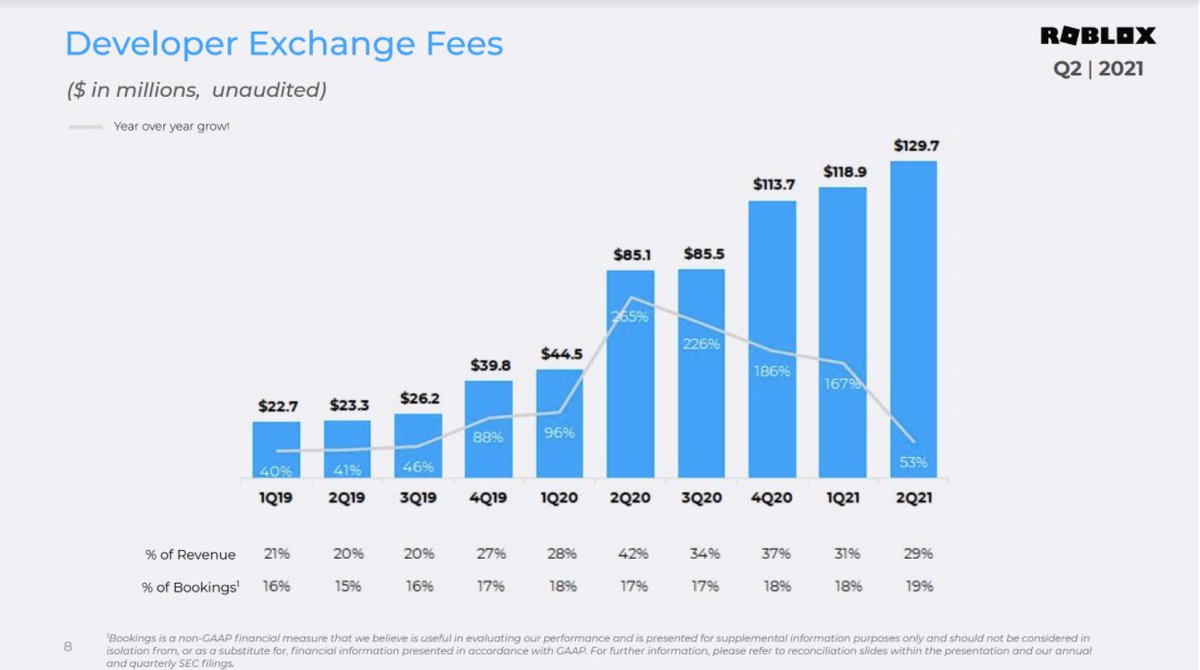
$689m is an incredible number, but it would be even more amazing if Roblox weren’t forced to pay out 30% of its revenue to other platforms. This is a problem that’s produced upstream, by app stores.
Roblox’s CEO has gone on the record to say that he could pay developers more if Apple and Google lowered their take rates, which stand at an average of ~30%.
In other words, it’s take rates, all the way down.
In other words, it’s take rates, all the way down.
https://twitter.com/axios/status/1401917363075702787
Tim Sweeney, of Epic Games has also talked about platform rent-seeking. The fear is that centralized platforms will one day “tax and gatekeep world commerce.”
https://twitter.com/TimSweeneyEpic/status/1421156142047170567?s=20
This past weekend, the Wall Street Journal found that Apple made $8.5bn in operating profit in 2019 from taxing game revenue–an early signal that value is being strangle-holded by major platforms. This is obviously bad for developers.
wsj.com/articles/apple…
wsj.com/articles/apple…
Games now monetize primarily through two modes: in-game purchases (Fortnite, and studios like Activision, Rockstar, and TakeTwo have gone this route) and user-generated modding with a take rate (Minecraft, Roblox).
Web 3 gaming will upend all of this.
The point of Web 3 is that users own the in-game items (as NFTs), the in-game currency (as ERC-20 tokens), and eventually, the game itself (via governance tokens that entitle users to in-game revenue).
To me, the definition of ownership is simple. If I need permission from someone else to use or move an item, I don’t own it. If I can buy, sell, and interact with something freely, I do.
(Yes, by my definition this means that you don’t actually own traditional games, game items, stocks, the money in your bank account, or even your home if an intermediary is involved. Ownership is defined as the complete absence of middlemen)
New Web 3 games, like Axie Infinity, Loot, and Rarity are beginning to embrace this.
Look at Axie Infinity, a game with about 1.7 million players and over $2.3bn in trading volume. In the game, users own Axie’s outright as NFTs, and are able to earn SLP (the Axie breeding token) and AXS (the Axie governance token) through gameplay and trading.
Axie will also allow users to own land plots and eventually launch new games on top of the platform itself. In addition, Axie is launching its own decentralized exchange
theblockcrypto.com/linked/119283/…
theblockcrypto.com/linked/119283/…
Loot is another great example of this. @dhof is stewarding an extended universe of derivative & synthetic NFT projects & games, all built around a simple text-based NFT.
Loot trading volume is at over 67k eth ($232m) and popular Loot derivatives have done over 2.7k eth in volume ($10m). $AGLD has a market cap of $217 million.
dune.xyz/dqniellew/Loot…
dune.xyz/dqniellew/Loot…
All of this value comes back to the community through trading royalties and minting costs that are directed to developers.
As impressive as the numbers are, the really cool thing about Loot is the fact that we are witnessing a game being built in realtime. Where and how value accrues in the Loot ecosystem is yet to be determined: the story is being written by the users.
https://twitter.com/dhof/status/1444334741415550987?s=20
Over on the Fantom blockchain, a network of developers are building Rarity, a D&D-style on-chain game in which players generate “Summoners” who gain a level and earn skills with each day of gameplay.
With each level progression, Summoners earn points which unlock additional game elements, including Attributes, Skills, Crafting, Feats, Rarity Gold, and the ability to go on different quests. The game has multiple user-created frontends and contracts, which influence gameplay. 



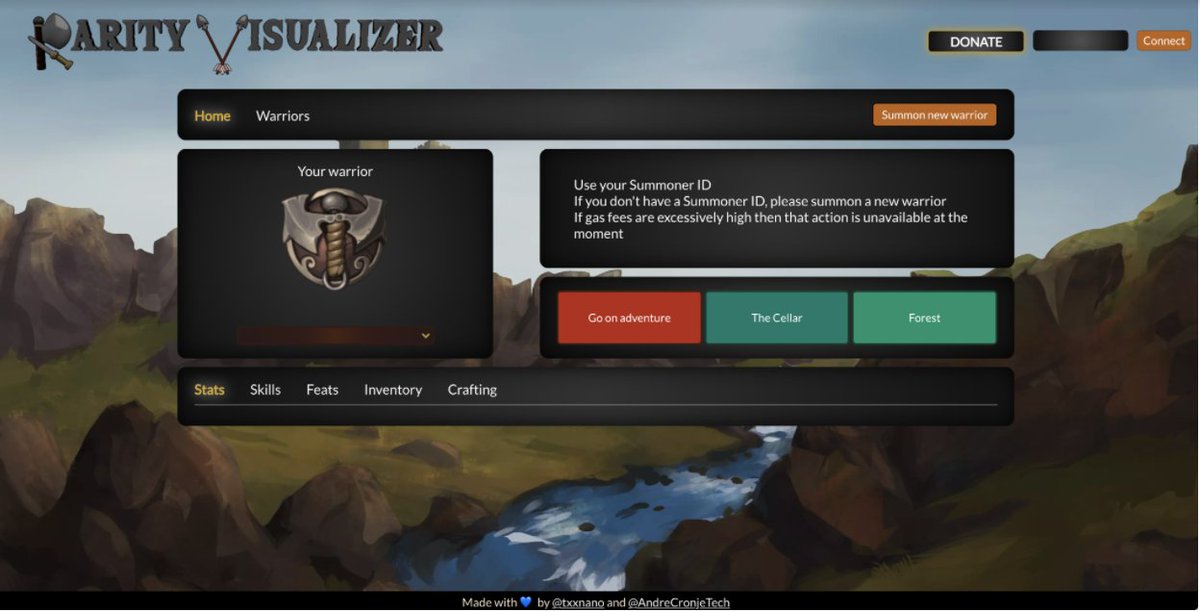
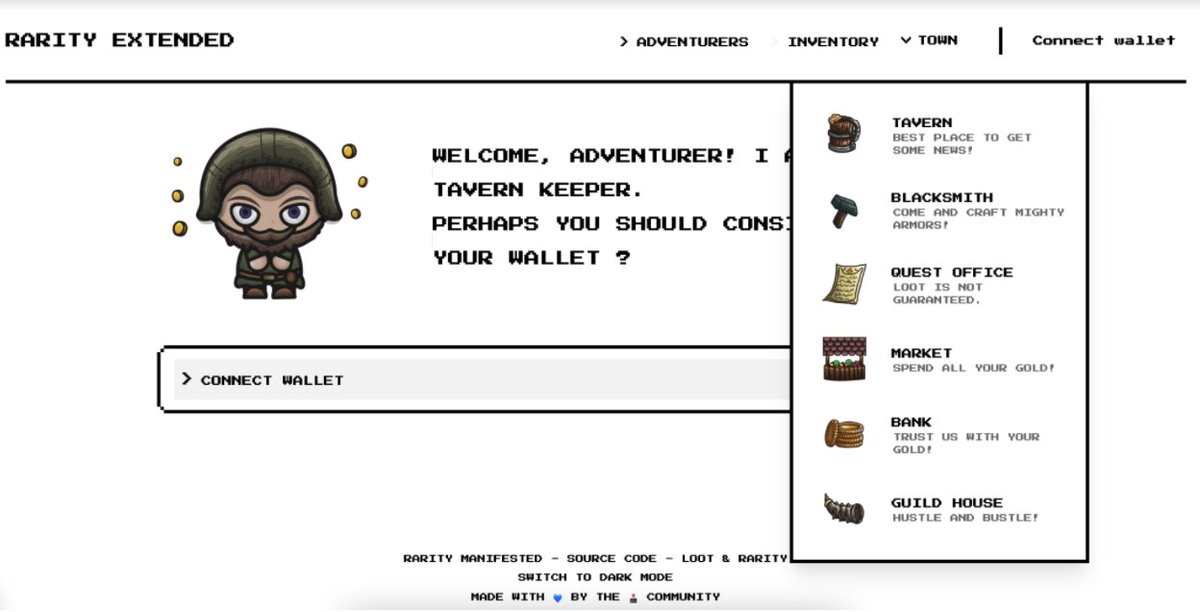
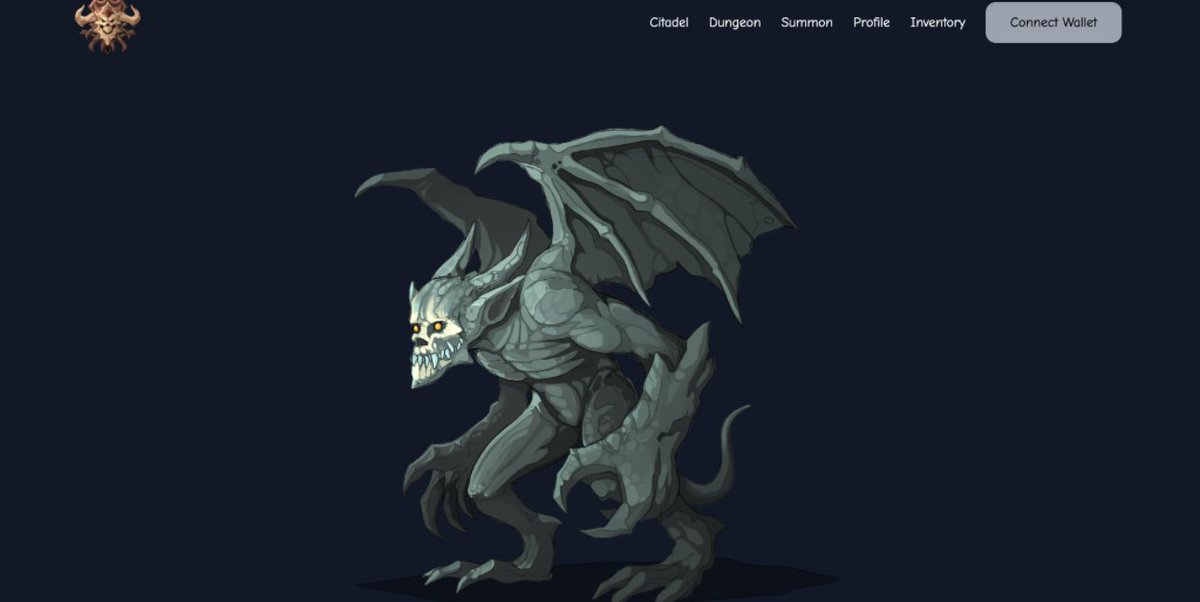
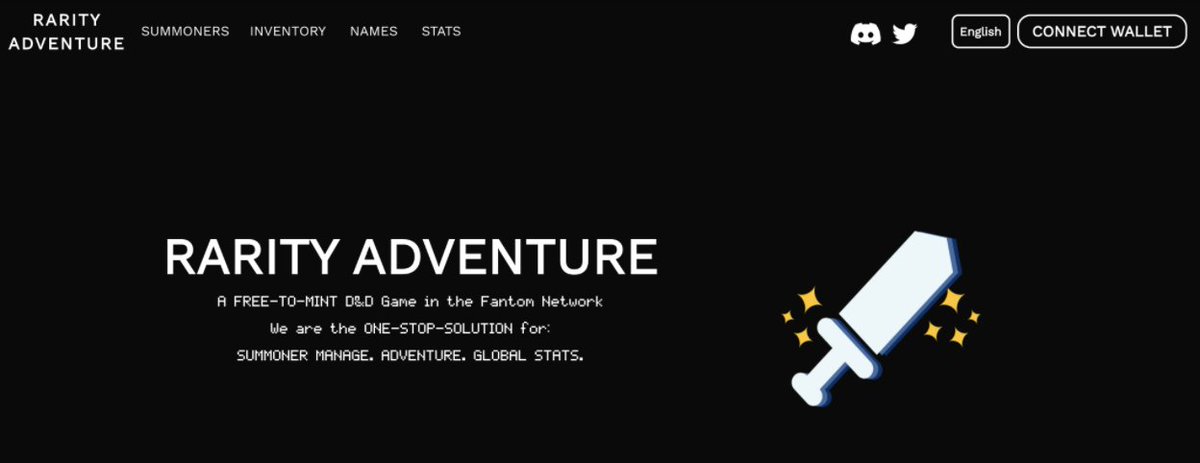
Web 2 vs web3 gaming is the difference between exploring a map built by a central gaming studio vs building the map in real time with billions of other players. And it’s all made possible by the fact that you, the player, can own your assets for the first time in history.
• • •
Missing some Tweet in this thread? You can try to
force a refresh



